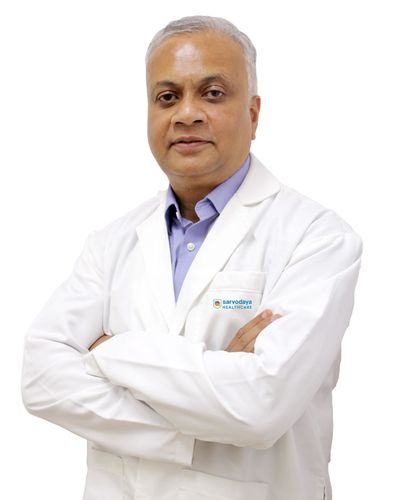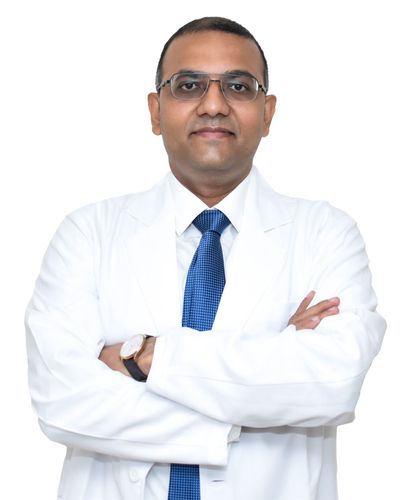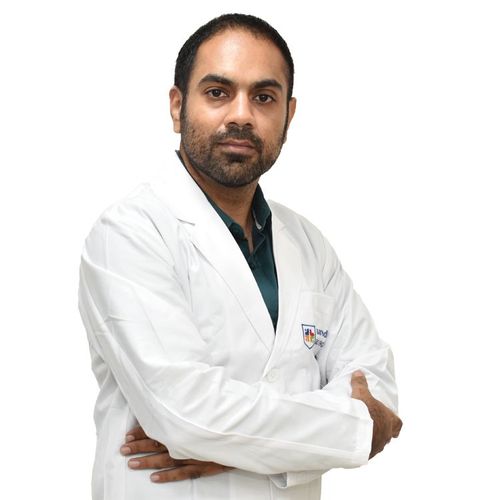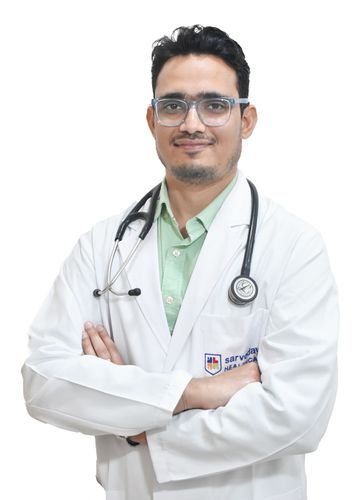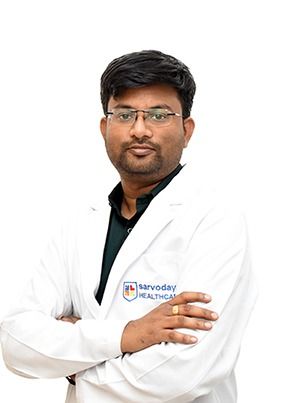Overview
Non-alcoholic fatty liver disease (NAFLD) occurs when fat builds up in the liver without alcohol use, often linked to obesity, diabetes, and metabolic syndrome. While simple fatty liver may remain harmless, non-alcoholic steatohepatitis (NASH) can cause inflammation, scarring, cirrhosis, or even liver cancer.
At Sarvodaya, expert gastroenterologists provide advanced evaluation, lifestyle guidance, and ongoing monitoring. With personalised care and evidence-based therapies, patients can access effective fatty liver treatment to prevent disease progression and protect long-term liver health.
Symptoms of Non-alcoholic Fatty Liver Disease
- Fatigue or low energy
- Mild discomfort or pain in the right upper abdomen
- General feeling of being unwell
- Abdominal swelling in advanced stages
- Jaundice (yellowing of skin and eyes)
- Itchy skin
- Swelling in legs or ankles
- Spider-like blood vessels under the skin
- Red palms
- Mental confusion in severe cases
- Enlarged liver causing a sense of fullness or pressure
Causes Non-alcoholic fatty liver disease
- Obesity and metabolic syndrome
- Insulin resistance and type 2 diabetes
- High triglycerides and abnormal cholesterol
- Unhealthy diet
- Sedentary lifestyle
- Genetic predisposition
- Other contributors
Diagnosis of Non-alcoholic Fatty Liver Disease
Accurate diagnosis of fatty liver disease helps confirm its severity, assess associated risks, and guide effective management, ensuring patients receive expert care at a leading Liver Cirrhosis Treatment Hospital like Sarvodaya.
- Clinical assessment and labs – Review symptoms, medical history, and risk factors. Blood tests, including liver enzymes (ALT, AST), liver function profile, and metabolic panel, help evaluate overall liver health.
- Ultrasound and CT/MRI scans – Ultrasound is the first-line tool to detect fat accumulation. CT or MRI provides a detailed assessment of liver size, fat content, and structural changes.
- FibroScan and elastography – Advanced imaging, such as FibroScan or magnetic resonance elastography, measures liver stiffness, helping detect early fibrosis and cirrhosis.
- Liver biopsy (select cases) – Performed when imaging is inconclusive, to distinguish NASH (non-alcoholic steatohepatitis) from simple fatty liver and assess inflammation or scarring severity.
- Comprehensive metabolic evaluation – Screening for diabetes, abnormal cholesterol, cardiovascular risk, and metabolic syndrome ensures a complete picture of patient health.
- Multidisciplinary approach – Hepatologists, endocrinologists, cardiologists, and nutrition experts collaborate to create a personalised treatment pathway.
Treatment of Non-alcoholic Fatty Liver Disease
- Lifestyle modification – Gradual weight loss of 7–10% through a balanced approach combining healthier eating patterns and increased physical activity, shown to reduce fat buildup and improve liver health.
- Dietary counselling – Adoption of a Mediterranean-style diet with reduced refined sugars, higher fibre intake, and portion control to restore metabolic balance and support long-term liver function.
- Exercise programme – Regular aerobic workouts along with resistance training to improve insulin sensitivity, boost metabolism, and prevent progression of fatty liver disease.
- Management of associated conditions – Comprehensive care addressing diabetes, hypertension, and cholesterol abnormalities to reduce overall metabolic risk and enhance treatment outcomes.
- Emerging medications – Use of therapies such as vitamin E, pioglitazone, and newer anti-fibrotic agents currently under clinical trials, offering promising options for advanced cases of NASH.
- Regular monitoring – Ongoing assessment through blood tests and imaging to evaluate disease progression, ensure personalised care, and guide timely interventions with the best liver doctors in Delhi NCR at Sarvodaya Hospital.
Prevention & Lifestyle Modification
At Sarvodaya Hospital, we stand by you at every step, empowering you with the right guidance to protect your liver, prevent disease progression, and maintain lifelong wellness at our leading Gastroenterology Hospital in Delhi NCR.
- Limit alcohol completely – Even small amounts can worsen liver damage; complete abstinence is the safest way to protect liver health.
- Maintain a healthy weight & stay active – Aim for regular exercise (150 minutes of aerobic activity + strength training weekly) along with balanced nutrition to reduce fat accumulation in the liver.
- Follow a balanced, liver-friendly diet – Prioritise fresh vegetables, fruits, whole grains, lean proteins, and healthy fats while avoiding refined sugars, saturated fats, and heavily processed foods.
- Control diabetes, blood pressure & cholesterol – Managing these conditions through lifestyle changes and prescribed medications lowers the risk of fatty liver and further complications.
- Avoid unnecessary medications – Some drugs can strain the liver; always follow medical advice and avoid self-medication.
- Regular check-ups and monitoring – Ongoing follow-ups with specialists at our trusted Gastroenterology Hospital in Faridabad ensure timely evaluation, lifestyle guidance, and early intervention for better long-term outcomes.
Pre and Post Treatment Care
Before treatment
- Comprehensive assessment including detailed medical history, physical examination, and baseline laboratory studies
- Nutritional evaluation and dietary counselling to establish realistic weight loss goals and eating plans
- Exercise assessment and development of a safe, progressive physical activity programme based on fitness level
- Education about NAFLD, its progression, and the importance of lifestyle modifications for long-term management.
After treatment
- Regular monitoring with blood tests every 3-6 months to assess liver enzymes and metabolic parameters
- Follow-up imaging studies to evaluate treatment response and disease progression
- Ongoing nutritional support and exercise coaching to maintain lifestyle changes
- Management of associated conditions and medication adjustments as needed
- Long-term surveillance for complications, including cirrhosis and hepatocellular carcinoma in advanced cases.


